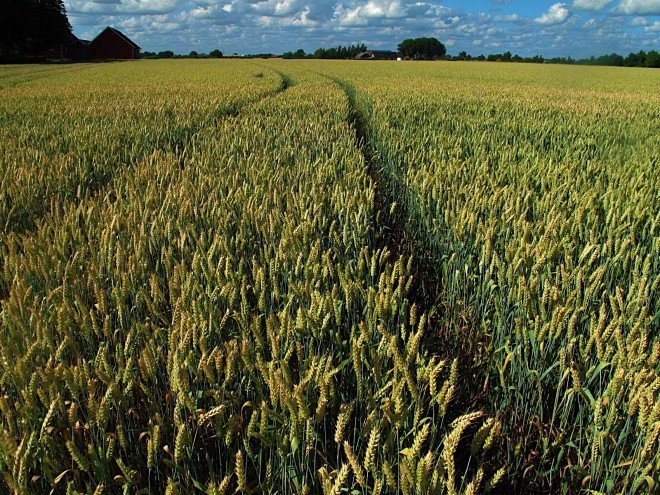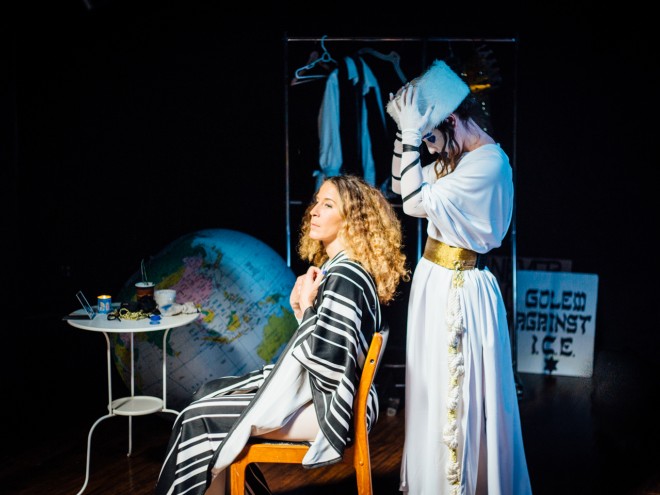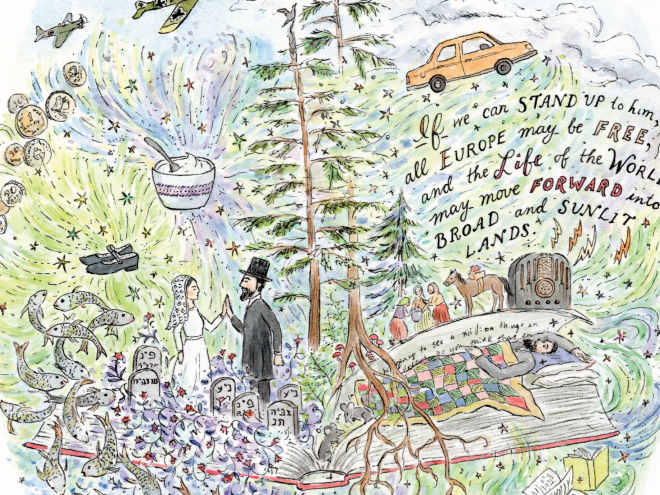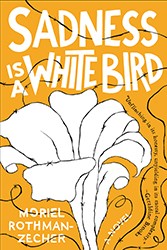
Image credit: Emna Mizouni/Wikimedia Commons
Moriel Rothman-Zecher is the author of Sadness Is a White Bird. He is blogging here as part of Jewish Book Council’s Visiting Scribe series.
The first page of my novel, which is one of my favorite pages, owes everything to poetry. I wrote this page early in my process of second-drafting, and then revised it well over a hundred times: some of these revisions just entailed changing one or two words, or altering the spacing, but each of them felt extremely consequential. It felt, in other words, like editing a poem. (I can recite the entire page by memory, and would often revise out loud, while walking or running or riding the bus: like in poems, the cadences and rhythms and sounds of the words all felt like they mattered as much as — if not more than— their literal meanings.) Beyond that, contained in this page are multiple references to poems by Mahmoud Darwish and Yehuda Amichai, a half-reference to the poetry of the Book of Judges, and two lines that were partially cannibalized from my own unfinished poems, which now lie chewed up and forsaken in a dusty digital folder somewhere deep in the recesses of my desktop, never to be opened again. (Sorry, little poems).
My novel’s debt to poetry does not end there: the poem by Mahmoud Darwish, “A Soldier Dreams of White Lilies,” plays a major role in the narrative, and the novel’s title is derived from one of the lines of this poem (“Sadness is a white bird that does not come near a battlefield/Soldiers commit a sin when they feel sad.”) Other poems by Darwish, “Identity Card” and “The Earth is Closing On Us,” are also quoted, and play important roles in the story, as do “My Mother Baked the Whole World for Me,” by Yehuda Amichai, and an untitled poem by the narrator’s Salonican great-uncle Jacko Sadicario (which was also mostly taken from an unfinished poem of my own). And then there are the references to the poetry of the Bible, and the sections that seek to emulate poetry’s pacing and poetry’s word-pairings and even poetry’s ‘about’lessness. And indeed, the novel has been called “poetic,” which I appreciate. But what about poetry itself: not poetic-but-ultimately-plotted prose, or pieces of poems, or poetry-like rhythms, but actual poetry?
While writing this book, I encountered the following passage from Ben Lerner’s novel, Leaving the Atocha Station, quoted in his essay on poetry called “The Hatred of Poetry”: “I tended to find lines of poetry beautiful only when I encountered them quoted in prose, in the essays my professors had assigned in college, where the line breaks were replaced with slashes, so that what was communicated was less a particular poem than the echo of poetic possibility.” (Incidentally, Ben Lerner is one of my favorite fiction and essay writers, and I have been unable to resonate with any of his poems I’ve read.) I found Lerner’s passage to be both indicting, and right-on. And it led to me the question: what debt do I, as a writer, owe poetry?
As a start, I declared a private micro-war on italics, at least when it came to poetry, in my novel. At the very least, I decided — knowing my own instinct as a reader to see poetry italicized in a book and skip over it, deeming it nonessential, decorative, uncritical to the plot—I would de-italicize all poem fragments, in hope that the snippets of poetry embedded in the novel would not be skipped over so easily. (This micro-war grew to include transliterations that appear in the book as well. As poetry reminds us, words are not only meanings: they are also a collection of scattered syllables and crunched-together consonants. I hope the reader will be a mote less likely to skip over unitalicized fragments of Arabic or Hebrew or Judeoespanyol, even if she speaks none of these languages). And next, I hope that folks who resonate with parts of this book will decide to read (or reread), in full, some of the poetry referenced in it, starting with Darwish and Amichai, and then continuing onwards, perhaps, to other favorites of mine, both from the region — Taha Muhammad Ali, Sami Shalom Shitrit, Yona Wallach, Nizar Qabbani, Hezy Leskly — and from elsewhere — Terrance Hayes, Osip Mandelstam, Allen Ginsberg, Robin Coste Lewis, Frank O’Hara, Rokhl Korn, Jacob Glatstein, Mary Oliver, William Stafford, Ocean Vuong, Philip Levine. Or any other complete poems, really: my poetical/polemical hope is that all of us readers of fiction and nonfiction and history and essays and blogs — myself included — read a bit more poetry, for poetry’s sake.
Moriel Rothman-Zecher is the author of the novel Sadness Is a White Bird (Atria Books, 2018), which was a finalist for the Dayton Literary Peace Prize and the National Jewish Book Award, among other honors. His second novel, which follows two Yiddish speaking immigrants from a fictional shtetl to Philadelphia of the 1930s, is forthcoming from Farrar, Straus and Giroux. Moriel’s work has been published in The New York Times, the Paris Review’s Daily, Zyzzyva Magazine, and elsewhere, and he is the recipient of the National Book Foundation’s ‘5 Under 35’ Honor, two MacDowell Colony Fellowships for Literature (2017 & 2020), and a Wallis Annenberg Helix Project Fellowship for Yiddish Cultural Studies (2018−2019). Moriel lives in Yellow Springs, Ohio, with his family.
Moriel is the creator of the fictional characters Mathew L. Cohn, Marky Miller, and M. Pinsky-Appelbaum as part of the series, What We Talk About When We Talk About the Golem.



